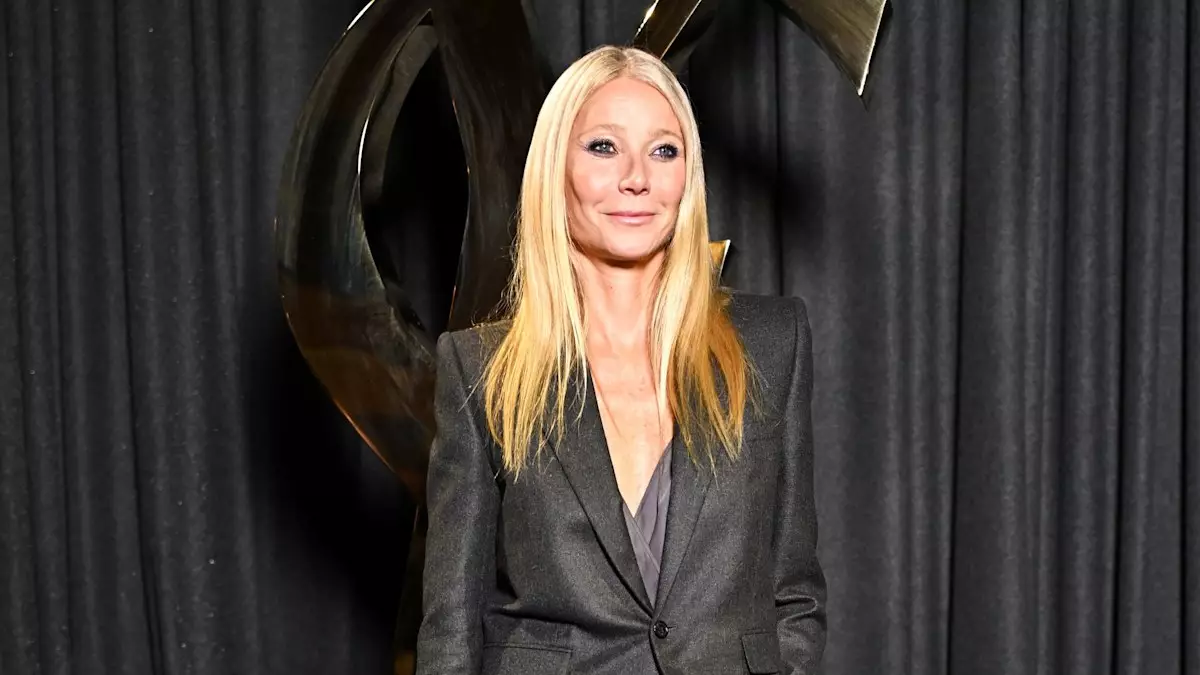In an era where celebrity wellness influencers often set the tone for dietary trends, Gwyneth Paltrow’s recent admissions about her eating habits can be described as nothing short of revolutionary. Known for championing strict diets and wellness regimens, Gwyneth, a prominent figure in the health industry, has now taken a step back, publicly confessing her return to eating foods often deemed off-limits, like sourdough bread and cheese. This transition raises pertinent questions about the impact of celebrity culture on our understanding of health and well-being.
Diving into the heart of the matter, one cannot overlook how celebrity endorsements can warp our perceptions of what a nutritious diet entails. In 2021, when Paltrow revealed she began incorporating bread into her diet amidst the chaos of lockdowns, it was met with a mixture of surprise and skepticism. Fast forward to her latest disclosure on her Goop podcast, where she discusses easing up on rigid dietary restrictions, and it seems we are witnessing a transformation not just in her eating patterns but also in the overarching narrative surrounding wellness.
From Restriction to Freedom: A Paradigm Shift
The tone of modern health advice is slowly shifting away from rigorous dietary limitations towards a more holistic balance. Wellness expert Rachael Sacerdoti echoes this sentiment, highlighting how restrictive diets can lead to more problems than solutions. According to her, “the all or nothing mentality that has dominated diet culture for decades is finally being recognized for what it is: unsustainable and often harmful.”
This evolution is timely, as many individuals, particularly women, are reevaluating their dietary choices after experiencing the mental and emotional toll of yo-yo dieting. To observe a figure like Gwyneth, who has been synonymous with strict wellness regimens, fostering a message of moderation acts as a powerful reminder that mental well-being is just as crucial as physical health. The relationship we maintain with food should nurture our bodies without the shackles of guilt or fear.
The Hidden Cost of Extremes
Sacerdoti emphasizes the detrimental effects restrictive eating can have on one’s mental state and body image. Trends like macrobiotics or obsessive clean eating may promise quick results but often backfire in ways that can be damaging in the long run. The emotional consequences of constantly chasing the “perfect” diet can lead to unfulfilled cravings, disordered eating habits, and a warped self-image.
As we witness Gwyneth’s return to everyday foods, her actions challenge the conventions that the wellness community has previously upheld. It’s a wake-up call to acknowledge that a fulfilling dietary approach should foster joy and inclusivity rather than fear and deprivation. The pursuit of health should not feel like a prison sentence but rather a liberating journey toward self-acceptance and balance.
Re-Defining Wellness: Practical Steps for Change
For individuals inspired by Gwyneth’s evolving philosophy on wellness, Rachael Sacerdoti offers practical strategies to cultivate a more balanced approach to eating. Her advice to focus on adding nutritious foods rather than eliminating entire groups encapsulates this shifting mentality effectively. By encouraging mindful eating and enjoyment of all foods in moderation, she invites people to reclaim their relationship with food.
Prioritizing consistency over perfection pushes against the unrealistic standards that societal pressures often impose. The idea that one can achieve sustainable progress without adhering to strict rules opens pathways for self-discovery. Considering how each food makes us feel, rather than how it might impact our appearance, fosters a healthier dialogue about nutrition.
The Future of Wellness Culture
The wellness industry is at a grassroots level of transformation, moving towards sustainable habits that prioritize both physical and mental health. As more prominent figures like Gwyneth embrace this movement, they provide a beacon of hope for individuals trapped in cycles of restriction. It’s an invitation to redefine what wellness means—moving away from extremes and toward an inclusive, joyful relationship with food.
In this era, where eating well extends beyond mere physical appearance, we stand at the precipice of a radical change. Perhaps, we are not merely consuming food but rather enjoying life itself—a beautiful balance that invites nourishment, happiness, and health into our daily experiences.

